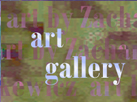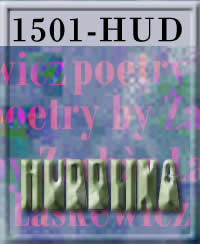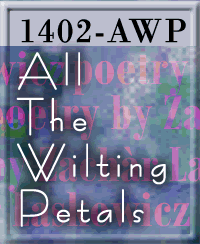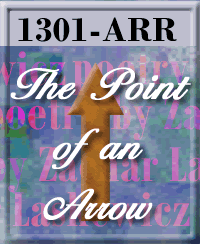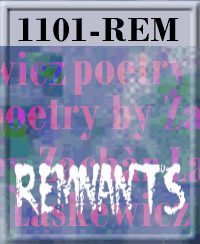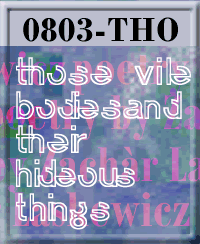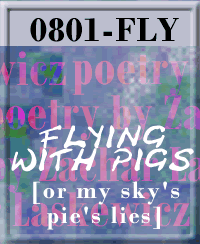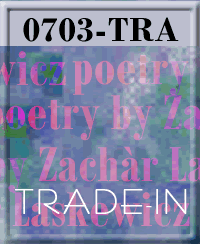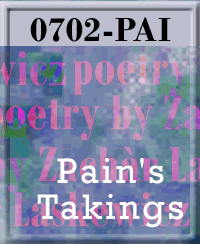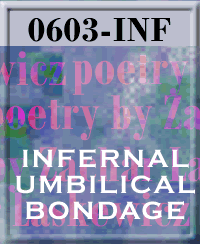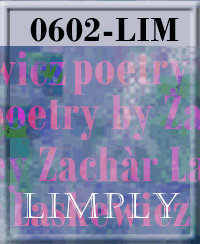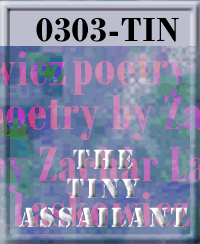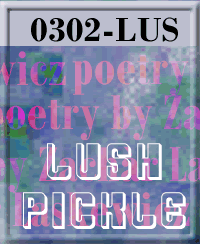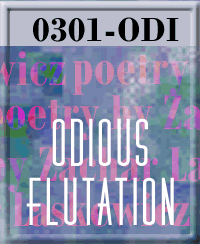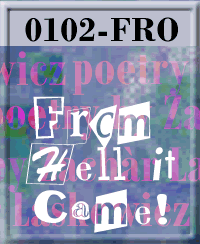Written by Zachàr
Laskewicz, for
men, builders all, who are not mute yet cannot speak – and also for builders
who are not blind but choose not to see . . . *
1.
The House I built was not of bricks,
Nor stone, nor wood, nor mud and sticks;
Made thus of cards
Its fall was self
Fulfilling…
Still, knowing
it would all backfire,
I kept on, as I did desire:
Not ‘house-as-built’,
Instead, the act of
Building.
2.
I worked on it
for hours long,
So you would think it safe and strong;
Yet for every hour
Intact I kept on
Praying…
With the fragile
beams I lay
I knew my house could blow away
Thanks to the weak
Foundations I was
Laying.
3.
It’s not
the cards that I can blame,
Rigged houses always win the game;
I knew of all the
Nothing I’d be
Getting…
I felt that I could
not refuse
To play, although I knew I’d lose;
Because I couldn’t
Still the urge for
Betting.
4.
It’s true,
I knew of gambling’s flaw
I quickly saw its single law –
Was to ensure that
Betters can’t be
Choosers
The moment that
I chose to play
I knew that I would have to pay;
And paying means
You’re playing with
The losers.
5.
The hand whose
contents I withheld
The winning full-house I forespelled
Was empty having
Nothing as a
Filling…
Worth all the nothing
spent within
How could you ever think I’d win?
You knew my hand of
Cards went for a
Killing.
6.
With hand revealed
I thought of Alice,
Who in Wonderland’s mad palace
To the queen of hearts
“Those guards are cards!” was
Saying…
Although those
cards cried for her head,
On seeing them as cards she read
That in dreamlands she
Could not stand for
Staying.
7.
I sold a piece
of my delusion
In my Wonderland’s illusion;
So quickly did you
Buy what I was
Selling…
Not seeing trees
much less the wood
I always knew you never could
Tell any tale I
Told from its
Retelling.
8.
I had you think
my house so tall
Was not of cards and wouldn’t fall;
But it was just your bluff
That I was
Calling…
At the moment that
it fell,
You didn’t see. How could you tell?
To see it rise does not
Foresee its
Falling.
9.
For little pigs
a lesson learned
Is safety’s cost – it must be earned;
Like them, I feared the wolf
Sees weakness
Showing…
On smelling pork,
he comes to town,
He finds your house, then blows it down;
His huff and puff so
Gruff it’s not for
Slowing.
10.
But in truth there’s
naught to gain
From piglets that are small and vain;
‘T-was of a false protection
They were
Preaching…
Because it was
I feared you’d see
The fiction in my fantasy;
Blinded was I taught
This empty
Teaching.
11.
Thus waiting for
the wolf to call,
I found out wolves don’t come at all;
Yet my fear grew
Deep and kept on
Growing…
I now know what
in truth rings true
In fact I am the one who blew;
When my house blew
Down, I did the
Blowing.
11.
I thought when
none escaped unscarred,
From Usher’s House which fell so hard;
One must’ve heard its cry
Through all that
Crying…
This was when I
wondered why
So still my house began to die;
Did it know of its own
Death before its
Dieing?
12.
When the House
of Usher Trembled
Perhaps it’s true that it resembled,
My house which could have
Been a vengeance
Seeking…
But as the earth
began to rumble
And it upon itself did tumble,
Why did it meekly
Crumble without
Creaking?
13.
As it collapsed
into the ground,
Uttering no single sound,
I thought of Usher’s
House, its anger
Seething…
An evil had upon
it preyed,
And thus it left a ghostly shade;
But when mine left
It had no soul for
Leaving.
14.
So quickly sank
my leaking boat,
It never had a hope to float;
That’s why it was of
Drowning I kept
Thinking…
Though stuck on
deck without a crew
It’s true that I still hoped that you
Not notice I had sunk
Much less the
Sinking.
15.
I knew it takes
no stormy gale
To sink a ship that just can’t sail -
Still did I thrust
Foolhardily my
Boat in…
Thus paddlelessly
up the creek,
I wasn’t mute yet couldn’t speak;
So strong my angst you’d
See me barely
Floating.
16.
Here in my house’s
ruins I wait,
Knowing now it’s far too late;
To build again what
I so hard was
Building…
Looking back, I
wish you knew
About my house and its faults too –
Only then, to build again
Would I be
Willing.
17.
I’m naked
with so little left
And although I’m house bereft;
At least what’s left
Is no more fear for
Fleeing…
With pained relief
I know you’ll see
What houselessly there’s left of me –
At last you’ll see there’s
Little left for
Seeing.
19.
Doomed to fall,
my house of cards,
Its broken glass in fractured shards
Has borne upon my soul
Scars I’m now
Bearing…
I built a house
I couldn’t fix
Because I built with cards not bricks -
And thus card-scarred I
Care no more for
Caring.
20.
It can’t
be true I’ve heard you’ve said
You still can’t see my house is dead?
Its presence there is
What you keep
Insisting…
Though it blew
down, and sank and fell,
Like me you want to build as well –
My house’s spell
Is just not built
For lifting.
*30 July 2006
Sint-Niklaas, Belgium
Last alterations made:
21 November 2006
Sint-Niklaas
Belgium
![]()
EXPLANATORY NOTES TO :

The instigating metaphor which led me to write this poem grew out of a few anecdotes I spawned a few months before the idea of writing a poem came to me:
[1] “You shouldn’t preach from a pulpit of your own devising...”
[2] “A house you build of mud and sticks, it sure as hell aint made of bricks...”
Here I point out how important it is to be aware of your own vulnerability; the reality you create is an entirely arbitrary one and could therefore dissipate into nothingness unexpectedly, i.e. although we may believe in our individual fictions wholeheartedly, if they metaphorically fall to pieces beneath us reality begins to make very little sense.
While taking a shower, the fairy-tale of the three pigs and the absurdity of its possible moral interpretations struck me and the first version of the poem came almost immediately into existence, that of a house representing symbolically the construction of the self, one which is potentially built of cards, a delicate structure if there ever was one. The other metaphors connected to cards (of gambling and playing games, of Alice in her Wonderland and her crazy encounters with the cards) as well as the realisation that houses don’t just get ‘blown down’, but also ‘fall’ in the sense meant by Poe in the “The Fall of the House of Usher” struck me soon after, and I soon had finished the first version from the point of view of someone who spends his time building the fiction that he calls existence, knowing how fragile it is, but at the same time longing for everyone to participate or at least to believe in its strength.
This has very personal meanings for myself, but I distanced it in a sense by making it ‘art’-ificial with the rhyming structures and the use of these metaphors, which were designed firstly to present an amusing structure to communicate a powerful message, but also to fool the reader into thinking they were reading an exercise in poetic conceit when it really struck to the centre of an essential (and personal) existential problem, something which for me becomes increasingly more blunt as the poem reaches its end.
For me ‘art’ is connected to the word artificial in an important way; it means in an attempt to comprehend reality, you (or at least I) distance it from myself by surrounding it or presenting it in a structure which I can not only share with others but will hopefully provide me with a better understanding of my universe; although it is ‘artificial’, it is not per se about the ‘artistic’ product but the necessity of its creation for the writer (or painter or composer) and the process they use for its creation; in this case it is through poetic conceit, although as a composer and a graphic artist I’ve used different means to express similar (and entirely different) themes.
Returning to the poem, although we know that we are vulnerable, it amuses me to see how busy I keep myself building at convincing myself of its strength (and to watch others do the same; men – builders all); to distract myself from the risks of my world falling apart I try to stay as busy as possible holding it together. To demonstrate this I use literary metaphors from gambling (‘stilling the lust to choose to bet; betters can’t be choosers’ etc.). Also the three little piglets tale and the big, bad wolf who represents fear; the pigs teach a false lesson of safety behind walls we’ve built which are essentially flimsy, which is in essence a set of lies because our houses remain equally vulnerable “I too fear the wolf sees weakness showing [the fear of you noticing my vulnerability; you are the wolf]”; further, there even aren’t any wolves – by being so obsessed with building, we are more than partly responsible for their demise. Alice in wonderland, who criticises the queen by pointing out her servants are just a set of playing cards, nothing more; she is brave and can wake out of the dream – she can choose; the absent first person ‘you’ however remains blind to the vulnerability of the narrator, aloof and distant (as most of us are, for obvious reasons, to what is really going on in the heads of all the people we encounter). There is also the metaphor of the leaking, sailless floating boat, ‘paddlessly stuck up the creek’ fighting the current to stay above water, and finally the metaphor of the comparison between the dramatic Fall of the House of Usher (E. A. Poe) and the ‘soulless’ house of cards which falls without a sound.
A last few words on some of the structural elements and word plays. As a rhyming poem I have attempted to form it into a structure which reads seamlessly and looks appealing on the page, even though it hides a confronting message (at least to me). I take advantage of the English language in ways which give the poem a folk-like simplicity, but I still make use of simple alliterations and repetitions that help ease and make pleasant the reading process, i.e. “You won’t see me, With so liitle left for, Seeing” – ambiguity here; “You wouldn’t see I’d sunk, Much less the, Sinking” – simple word plays, also allogicisms which have their own effect, i.e. “I knew of all the nothing I’d be getting” in relation to betting. Then there are deceptively funny elements “On smelling pork he comes to town, he finds your house, then blows it down; his huff and puff so gruff it’s not for slowing.” There are many other examples, but I hope this description provides a basis for understanding the poem.
Last alterations made:
15 January 2012
Ghent, Belgium.
0604-HOU
House of Cards (Poem by Zachàr Laskewicz)
Send mail to zachar@nachtschimmen.eu with questions or comments about this website.

Send mail to zachar@nachtschimmen.eu with questions or comments about this website.

Last modified: 16 May 2013
LIST OF POEMS :


